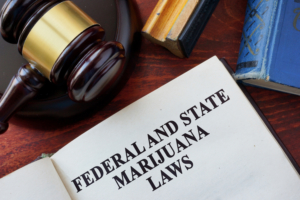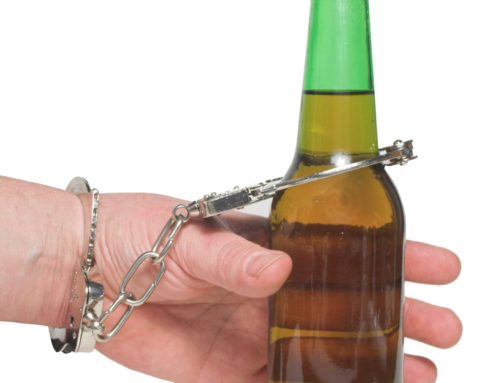 A. Recent changes in Federal marijuana laws enforcement policies
A. Recent changes in Federal marijuana laws enforcement policies
As California commences the legalization of recreational marijuana possession and use on January 1, 2018, the state has found itself in the cross current between State and Federal marijuana laws. Many residents of California think that because they comply with California marijuana laws they are not violating Federal law. This is a mistaken belief. It has become abundantly clear that the current Trump Administration’s aggressive Federal enforcement of federal marijuana laws in California will place many California residents at risk for prosecution for selling, possessing or using recreational or medicinal marijuana.
Recently the Ninth Circuit Court of Appeals issued a ruling that may help clarify the current state of affairs of this conflict in laws. In the United States of America v. Kleinman 2018 DJDAR 711, the defendant began operating purported medical marijiana collectives in California in 2006. Despite complying with California state law, the Federal government’s DEA seized evidence and a grand jury indicted the defendants resulting in a federal prosecutuon. The Ninth Circuit found that it was irrelevant if the Defendant complied with California Law since he was selling marijuana to Non-California citizens in violation of both California and Federal Law.
B. California Compassionate Use Act
In 1996 the voters of California approved the Compassionate Use Act (Health & Safety Code 11362.5). This law decriminalized possession and cultivation of marijuana for medical use. After that the State of California enacted the Medical Marijuana Program with allowed qualified patients to form collectives for the purpose of cultivating and distributing medical marijuana. However, Federal law still prohibits the use or sale of marijuana even if the marijuana was lawfully sold, cultivated or used under California state law.
C. The Obama Administration policy
Even though the Federal law was clear since December of 2014, under the Obama Administration, congress prohibited the use of Department of Justice funds to prosecute people who complied with California state marijuana laws. Congress did not change the law per se, they placed a temporary hold on the ependiture of money for prosectutions of the laws.
In 2016 the Federal Ninth Circuit Court of Appeals made it very clear holding that “anyone in any state who possesses, distributes, or manufactures marijuana for medical or recreational purposes (or attempts to conspire to do so) is committing a federal crime” United States v. McIntosh 833 F. 3d 1163 (9th Cir.)(2016). But under this case a defendant prosecuted for violating Federal law dealing with marijuana can ask for a “McIntosh Hearing”. This is a special evidentiary hearing that must occur to determine whether the conduct alleged was completely and strictly authorized by state California state law. If the conduct did not comply then Department of Justice funds can be used to prosecute the defendants. If the conduct strictly complied then the case could not go forward.
In ruling that Kleinman was not entitled to a “McIntosh Hearing” the court clarifed certain aspects of marijuana use in California. First of all, even if the sale of marijuana was part of the operation of a lawful collective the collective is not allowed to sell or distribute to individuals or patients outside of California.
D. The Trump Administration policy
As recently as January of 2018, United States Attorney General Jeff Sessions has made it very clear that the Department of Justice will commence enforcement efforts against California state marijuana businesses. He has indicated that the freeze on enforcement efforts imposed by the Obama Adminstration is over. In response the California State Attorney General Xavier Becerra has reiterated that it is the policy of State of California to requlate marijuana sales not criminalize it.
This leaves Californians in limbo as to what to expect. It is unclear whether a person who purchases marijuana lawfully under California law will be prosecuted under Federal law. It is unclear whether a lawful created marijuana collective who lawfully sells marijuana to a purchaser can be prosecuted under Federal law. This new policy by the Federal government also effects banks and lending institutions, insurance companies, commercial real estate landlords and many others as to whether or not they risk Federal prosecution. Banks will be hesitant to make loans to cooperatives. Insurance companies will be hesitant to insure cooperatives and landlords will be hesitant to enter into a lease agreement with a tenant who is a lawfully created cooperative for fear of prosecution.
E. Conclusion
In many cases even though someone is charged with a crime involving marijuana whether it be state or federal an experienced California Criminal attorney can defend and or negotiate a favorable resolution of a case. If someone is charged with a drug or marijuana related offense they should hire a experienced seasoned criminal defense lawyer with knowledge of both California criminal marijuana laws and federal marijuana laws where applicable. Even in the most difficult and serious cases an experienced criminal attorney can get an acquittal for a client or in appropriate cases negotiate a plea bargain that does not result in lengthy jail or prison time.





